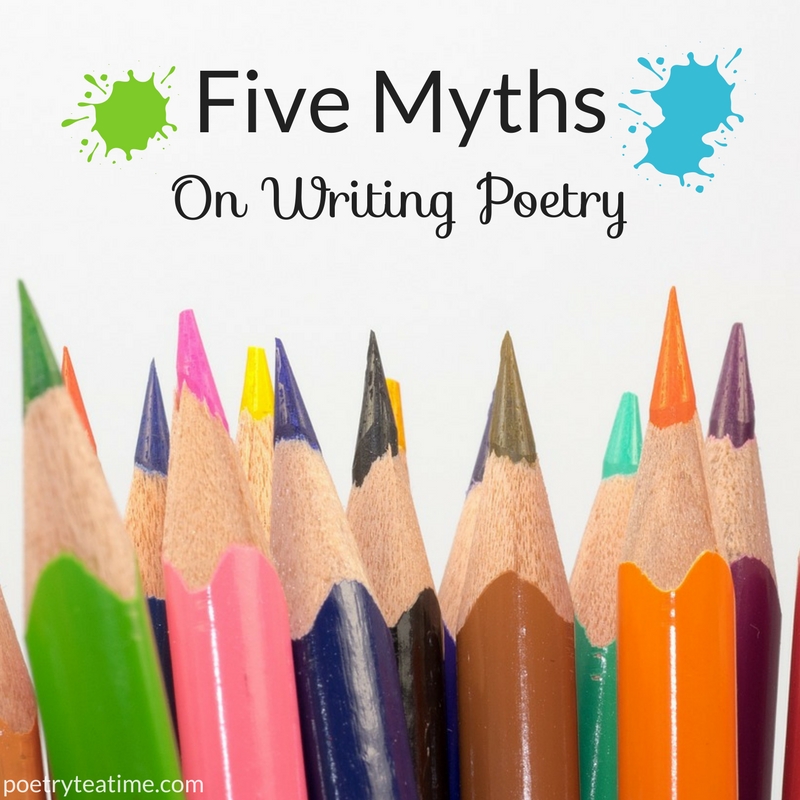It’s always fun to grab a stack of poetry books and dig in, but writing your own poetry is equally exciting! If you haven't written a poem before, never fear. Over the next few weeks, we’ll be talking about some myths about writing poetry, steps for actually writing a poem, tips for editing your poems, and a whole lot of poetry prompts. For today, let’s take a look at some myths about writing poetry!
Writing poetry can seem intimidating. It’s structured in a different way than regular writing and sometimes there are complicated rules about what sounds and rhythms you can use. But we’re here today to bust some myths about writing poetry.
Myth-Busters for Poetry
Rhyme? Rhythm?: First, your poem doesn’t have to follow a rhyme scheme or rhythm. If you’re stuck trying to squeeze your words into a particular pattern, try free verse instead. Free verse means you can move on to a new line whenever you want, without worrying if the line you wrote has a certain number of syllables or ends on a specific sound.
Very Important Subjects: While a lot of poems have been written about Important Things, your poetry can be about whatever you want! Poets have written about subjects from war and politics to their favorite food, their cat, or their socks, and you can too. Dying to write a poem about the dust bunnies under your bed? Go for it!
Hear Ye, Hear Ye: Poetry has to sound ancient, right? It should sound like a king in Medieval Europe rose from the dead and announced, “Here I shall wage my war ‘til all is o’er. / Upon mine shield shall stand with sword in hand….” Not so fast! You don’t have to use thee’s and thou’s in your poem unless you really, really want to. In fact, your poem can sound exactly how you speak in real life!
Grammar Rules: Does poetry have to follow rules of standard grammar and spelling? No way! Part of the fun of poetry is mixing up what people expect and throwing surprises their way. You can write in fragments (parts of sentences), or you can try scrambling the word order. You might want to have someone else check to see they can still understand what you’re saying. For some inspiration, read “Blizzard” by William Carlos Williams.
The Long and Short of It: Your poem absolutely must be either exactly 17 or 258 lines. No more and no less. Just kidding! Some poets have written beautiful poems that are only two lines (look at Ezra Pound’s “In a Station of the Metro”), while others have filled whole books with poems. Your poem can last as long as you want it to.
And that’s it! Writing poetry doesn’t have to be as scary as it looks.
For some practice myth-busting poetry in real life, grab a stack of poetry books during your next teatime. Take turns trying to come up with a rule that all of the poems in one book follow. Then find other poems that break those rules. You’re sure to discover lots of real-life poetry rulebreakers using all different types of forms, subjects, sounds, rhymes, rhythms, and more!
Be sure to check back next week for tips on how to write a poem!



